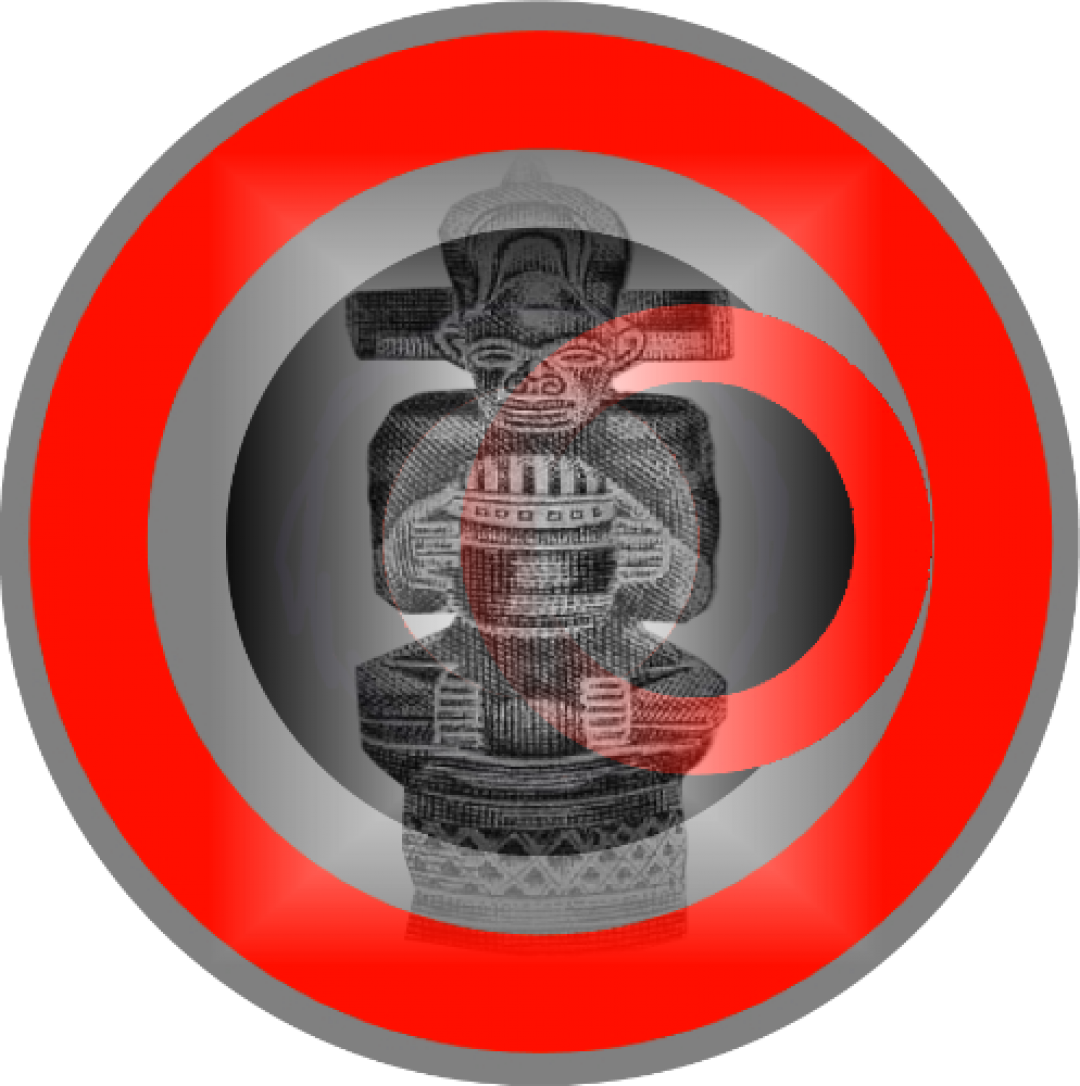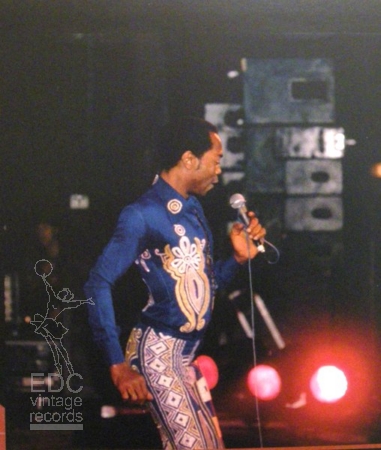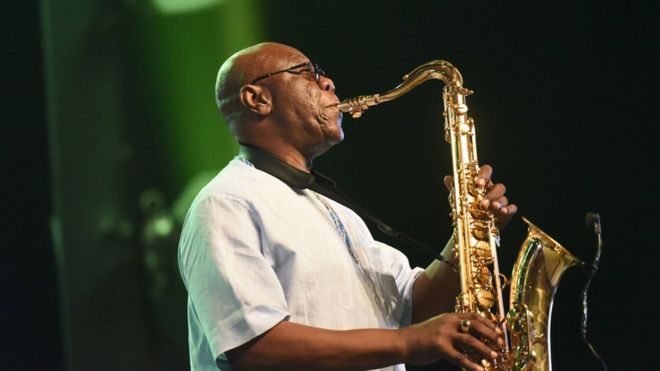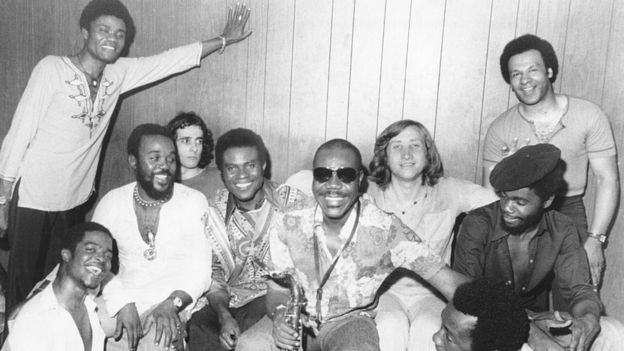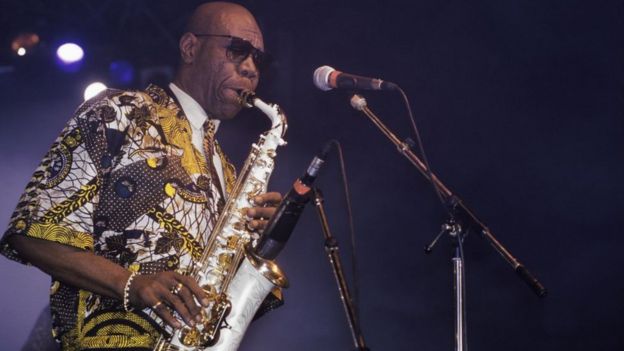https://www.vryeweekblad.com/mense-en-kultuur/2023-03-31-the-underground-sounds-of-africa/
Lees hierdie artikel in Afrikaans:

AMAPIANO
The underground sounds of Africa
After only recently learning of South African musicians such as Nduduzo Makhathini, FRED DE VRIES says we inhabit a dense forest of music that many of us haven’t even known about, let alone explored.
SOMETIMES, life can feel like dozing in the eye of a hurricane, not noticing the violent turbulence around you. And I’m not talking about politics (although I must say that the EFF protest didn’t even cause a ripple in our sleepy seaside town in the Deep South) but about music.
The other day I received an e-mail from a Dutch music friend who runs a small magazine called Platenblad. “My best album of 2022 is the brilliant and addictive In The Spirit of Ntu by the South African pianist Nduduzo Makhathini. How well known is that man in his own country?” he wrote.
“Hmm,” I wrote back, “to be honest I have never heard of Makhathini,” adding a shame-faced emoji. But when I asked my music-loving friends here, most of them also shook their head. Nduduzo who?
Some more examples. While going through the January issue of B ritish magazine The Wire, with its venerated end-of-year lists, I saw a number 43 position for a South African outfit called Phelimuncasi, whose album Ama Gogela was released on the Ugandan label Nyege Nyege Tapes. Phelimuncasi, I found out, are from Umlazi, near Durban. The uber-hip Pitchfork gave Ama Gogela a very good 7.6 and wrote: “Uninterested in subtlety or the slow burn of build-ups, they prefer sensory overload: clattering, repetitive polyrhythms and snarled call-and-response vocals.”
Elsewhere in the magazine, my eye fell on the Critical Beats Top 10, with a number one spot for a track by the South African duo QUE DJ & DJ Lag, Where’s Your Father. QUE’s real name is Thobani Mgobhozi and he grew up in KwaMashu, near Durban. The Wire filed Where’s Your Father under amapiano, which it described as a South African invention characterised by its “tantric pulse and huge sub bass”.
Back to Makhathini, who occupies a different musical space, although he too hails from KZN (uMgungundlovu, on the outskirts of Pietermaritzburg). The pianist is in his early 40s and plays pure jazz, especially drawing inspiration from the majestic John Coltrane Quartet, who made waves in the early sixties and released the still mind-boggling spiritual record A Love Supreme (Impulse! 1965).
Makhathini, who heads the music department at Fort Hare University, has released 10 albums, several of them on the American Blue Note label. So there you go, anyone with a vague interest in jazz, listen to In The Spirit of Ntu, which is also available on Spotify. It truly is wonderful, full of references to the golden era of improvisation yet uniquely South African.
What I’m trying to say here is that we inhabit a dense forest of music and many of us haven’t even heard of it, let alone explored it. The question is, where do you start? And that brings me to Eddy de Clercq, the Belgian-born DJ who happens to have a house in South Africa.
De Clercq became a phenomenon after he opened Club RoXY in Amsterdam in 1987. It was daring and decadent, and soon became the temple of techno and house in Europe, with De Clercq as its high priest. It went up in flames in 1999, on the day one of the other founders had been laid to rest.
By then De Clercq had already left, believing the club had become stale and predictable. Building on his reputation as a trend-setter, he became a globe-trotting DJ, earning tons of money with regular gigs in Paris, Brazil, New York, Italy, Switzerland and Germany, and meeting celebrities such as Madonna and Richard D James (Aphex Twin). He snorted Ritalin and was invited to debauched parties in Italy, indulging in cocaine and group sex.
But unlike many of his contemporaries who died from Aids or drugs, De Clercq was a survivor. He knew when enough was enough. In 2000, at the age of 45, he decided it was time for drastic changes. He said goodbye to the commercial DJ gigs and bought a holiday home in Boknes in the Eastern Cape.
He had visited South Africa for the first time in 1996, participating in a festival in Durban, and remembers: “Together with some Dutch DJs, we played until dawn for thousands of ravers; black, coloured, Indian and white. In other words, the rainbow nation in all its glory. And then, when the sun came up, to see the majestic sugar terminal in the port of Durban, surrounded by thousands of happy, smiling dancers, that was an unforgettable positive experience.
“I was completely taken in by the music that the local DJs played, kwaito and other styles that I had never heard before. It was fascinating for me to hear completely new dance music. In the West, we thought we knew it all.”
De Clercq became fascinated by our complex country, equal parts violent and hospitable, always exciting. It was especially the rich and under-appreciated music history that pulled him in. He spied new horizons and felt the urge to explore them.
“For example, in 1998 a friend from Port Elizabeth showed me his garage full of boxes with South African vinyl records – original singles and albums from the fifties, sixties and seventies: Cape jazz, township jive, kwela, jazz, disco boogie, a treasure of largely forgotten music,” he says.
“The collection came from local radio stations, and my friend had bought the whole lot to cherry-pick records by popular artists. He said I could take all the other boxes, because otherwise they would end up at the dump. He had no clue about this music. Nor did I. Until I started playing the records. That has broadened my horizons. And that’s why I started my blog Soul Safari in 1998 – I wanted to share the songs and provide context and background. I wanted to understand the history of this music and make connections.”
He subsequently also gained access to the rich music archives in Grahamstown and in 2011 released a selection of his findings as Township Jive & Kwela Jazz. Volumes 2, 3 and 4 duly followed.
De Clercq has always had his finger on the pulse, be it for disco, new wave, house or techno. For the new underground, he says, look no further. It’s here, right in front of us, in Africa. Some of the artists have already become huge, such as Burna Boy, Tiwa Savage and FireBoy DML from Nigeria. And do check out the fantastic music on Nyege Nyege Tapes and its Hakuna Kulala offshoot, with artists such as Afrorack, who creates whirling, dizzying electronic music from his studio in Kampala.
But let’s not forget our local heroes. De Clercq enthuses about the innovative electronic dance music that resulted in genres such as Mzansi house, gqom and amapiano. “Contrary to the four to the floor that defines most of the Western house and techno, South African musicians use local percussion and African rhythms. It’s not the heavy bass drum that dominates but the percussion, the groove.
“The production is often very bare and dry, minimalistic. Amapiano stands out because of the experimental use of extreme bass lines, next to each other, on top of each other, deeper and more pronounced than any Western house. And the tempo is much slower, with a big role for jazz influences and vocals in indigenous languages.”
Thanks to the internet, these new sounds have found their way to the rest of the world, hence their mention in magazines such as The Wire. It’s pure anarchy out there, with hardly a role left for traditional record companies. “The tracks are made by young producers who distribute their music via social media,” says De Clercq, who is proud to find himself mixing with these adventurous music makers from various parts of Africa.
Listen to his 2022 Afrotronic album or, even better, the wonderful selections on his Soul Safari blog, especially the amapiano set he recorded in Rome in 2021.
Listen to the playlist here.
♦ VWB ♦
GRATIS
Die ondergrondse klanke van Afrika
Fred de Vries7 min om te lees
Girl power is charting a new course
Fred de Vries7 min om te lees
I revisited the refreshed landscape of ‘Niemandsland’ and …
Fred de Vries9 min om te lees
A genius who refused to play by the punk rules
Fred de Vries11 min om te lees
Songs of the dark, for the dark
Fred de Vries6 min om te lees
Fred’s top 10 albums of 2022
Fred de Vries6 min om te lees
Fred de Vries
Fred de Vries is a Dutch author and journalist who moved to South Africa in 2003. He used to play in a punk band and has written nine non-fiction books, among them Club Risiko, a look at 80s underground music in six cities, including London, Berlin, New York and Johannesburg.
